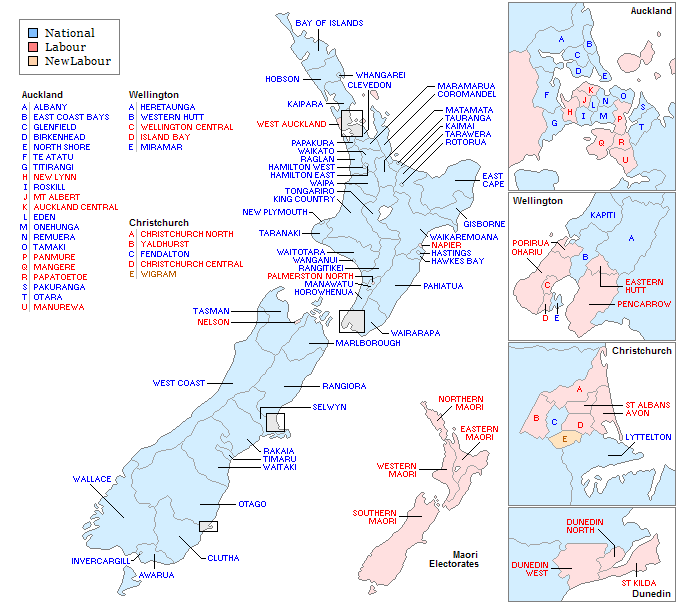Background
The Labour Party had taken office after defeating the National Party under Robert Muldoon in the 1984 election. David Lange became prime minister and Roger Douglas became Minister of Finance. The economic program outlined by Douglas was deeply unpopular with Labour's traditional supporters, however – deregulation, privatisation, and free trade, all opposed by the party's more left-wing members, were a key part of the Rogernomics platform. This internal dissent was off-set somewhat by new social legislation and a strong stance against nuclear weapons.
Labour was re-elected in the 1987 election with its parliamentary majority untouched, but the internal disputes continued. Eventually Lange forced Douglas to resign in December 1988, but continued destabilisation of his leadership by Douglas had weakened Lange's position such that he resigned eight months later. He was replaced as prime minister by Geoffrey Palmer, but Palmer failed to revive Labour's falling popularity. Several months before the election, Palmer was replaced by Mike Moore. The National Party was performing strongly – its leader, Jim Bolger, spoke repeatedly of "the Decent Society", saying that the reforms were doing significant damage to the social fabric of the country. The government was also being challenged by the NewLabour Party, founded by renegade MP Jim Anderton.
MPs retiring in 1990
Five National MPs and eleven Labour MPs intended to retire at the end of the 42nd Parliament.
Results
The 1990 election eventually saw a victory for the National Party, then in opposition. National won nearly half (48%) of the vote and 67 (69%) of the seats, becoming the fourth National government. This was the highest number of seats the party had ever won, either in absolute terms or as a percentage, and by extension the largest majority government in New Zealand history. Four new (and young) National MPs: (Bill English, Tony Ryall, Roger Sowry and Nick Smith) were called the "brat pack" by Sir Robert Muldoon (himself one of the "Young Turks" of 1960). [3]
The new Green Party gained the third-highest number of votes, but won no seats. The NewLabour Party won a single seat, due to Jim Anderton retaining the Sydenham seat he originally won as a Labour candidate.
The governing Labour Party, by contrast, suffered its worst-ever defeat since it first won power in the 1935 election, winning only 29 (30%) of the seats and 35% of the vote (its lowest percentage since 1931), and losing 27 seats. Initially it appeared that twelve ministers and the Speaker had lost their seats, but Fran Wilde scraped in on special votes. Many of Labour's talented "class of 84" were swept out, though five of them, Annette King, Jim Sutton, Trevor Mallard, Richard Northey and Judy Keall, returned in 1993.
The result was primarily due to intense anger at Labour and its policies (shown by it losing 12% of the vote) rather than love of National (which only increased its vote by 4%).
This page is based on this
Wikipedia article Text is available under the
CC BY-SA 4.0 license; additional terms may apply.
Images, videos and audio are available under their respective licenses.





